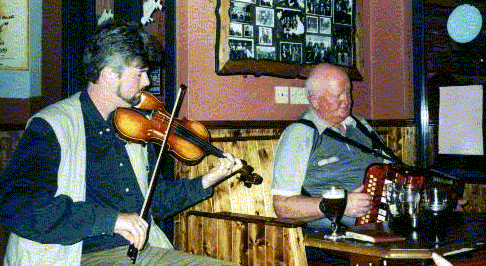What is Atlantic Music?
Atlantic Music connects traditions from both sides of the ocean — Irish, Scottish, Appalachian, and Maritime music carried across generations.

People ask me all the time what kind of music I play and produce. I never have a short answer. The easiest thing to say is “folk music,” but that hardly covers it. Some of it is traditional Irish music, some of it is Scottish, a little Cape Breton, a little Appalachian, some of it leans toward bluegrass, and then there’s the odd fiddle tune from Nova Scotia, New Brunswick, or the Quebecois tradition.
It’s all connected.
The music I love—the music I’ve spent most of my life playing and producing—comes from both sides of the Atlantic. It’s music carried across the ocean, shaped by history, migration, and generations of people who’ve kept these tunes alive, wherever they landed.
I started calling it Atlantic Music because that’s what it is. It’s not strictly Irish or Scottish, not strictly American or Canadian. It lives along the edges of the ocean and flows back and forth, carried by fiddlers, singers, sailors, immigrants, and storytellers.
This is music that tells the story of how people moved, how they carried their culture with them, and how they let those traditions evolve in new places. You can hear it in the old ballads from the Maritimes, in the driving fiddle tunes of Cape Breton, in the session circles of New England, and in the Appalachian tunes that still echo with their Celtic roots.
Atlantic Music isn’t a genre you’ll find on streaming playlists. It’s not locked in a category. But if you’ve ever tapped your foot to a jig, been moved by a lament, or found yourself humming along to a reel that feels older than memory, then you’ve heard it.
It’s music that crosses borders but never loses its soul.
This is the music I care about. This is the music I produce.
If it speaks to you too, stick around here at Sweet Songs or reach out to me at sweetsongsproject@gmail.com. Let’s keep it alive.




